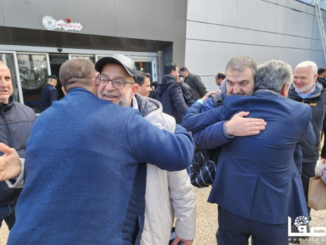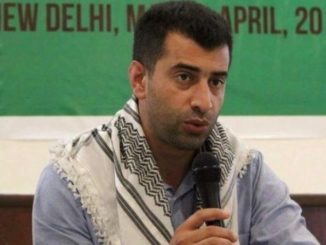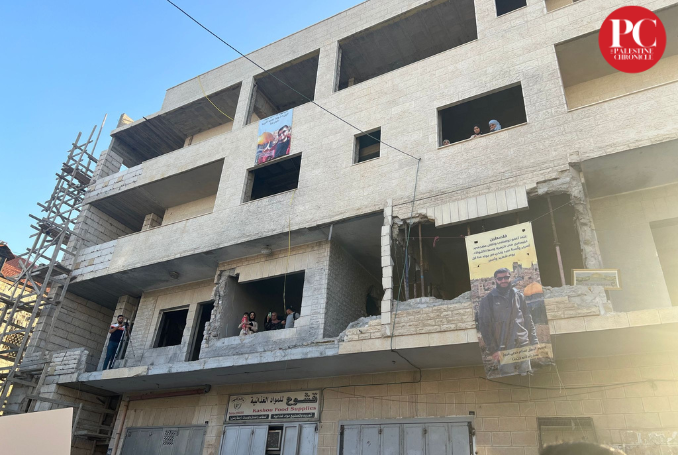
Every morning, Salah Al-Khawaja, 53, sits between the shattered walls of his house. He spends his time reliving his family’s memories in each of the demolished rooms.
The Israeli occupation forces stormed the house of the Khawaja family, in the town of Nilin, west of Ramallah, on May 23. They blew up the home, despite the fact that it is located in a four-story residential building.
The destruction of the family home came less than three months after Moataz, Salah’s 23-year-old son, allegedly carried out a shooting attack on Dizenkoff Street, in the center of Tel Aviv. This attack resulted in the death of an Israeli and the injury of others.
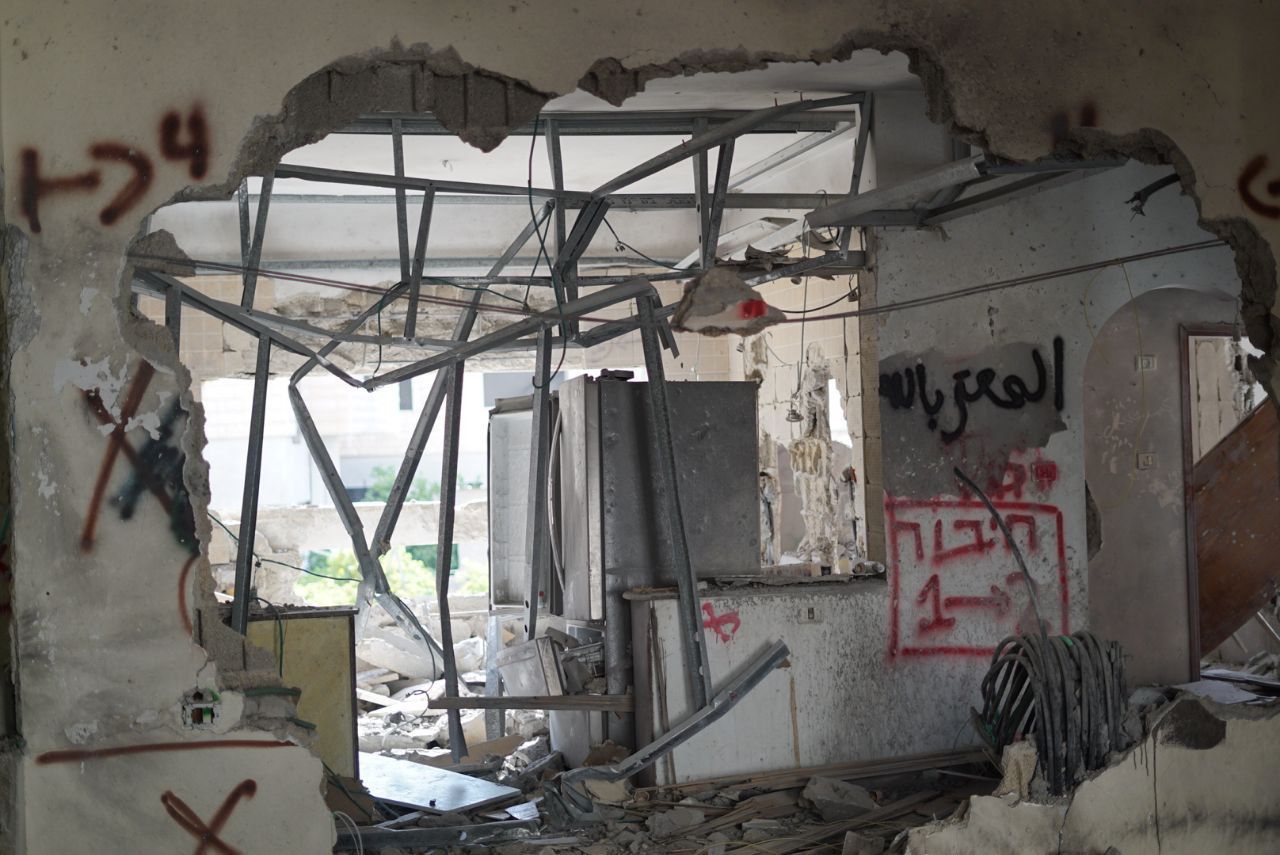
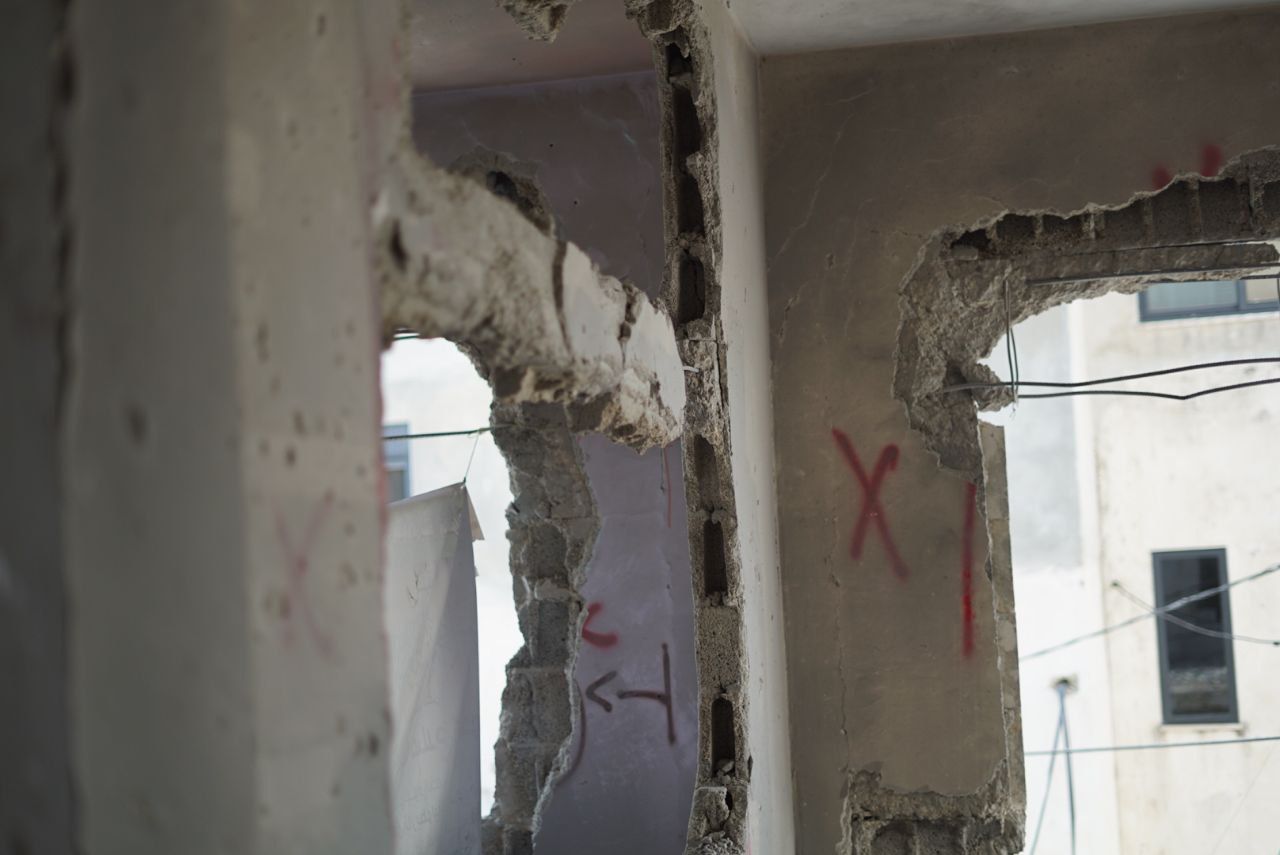
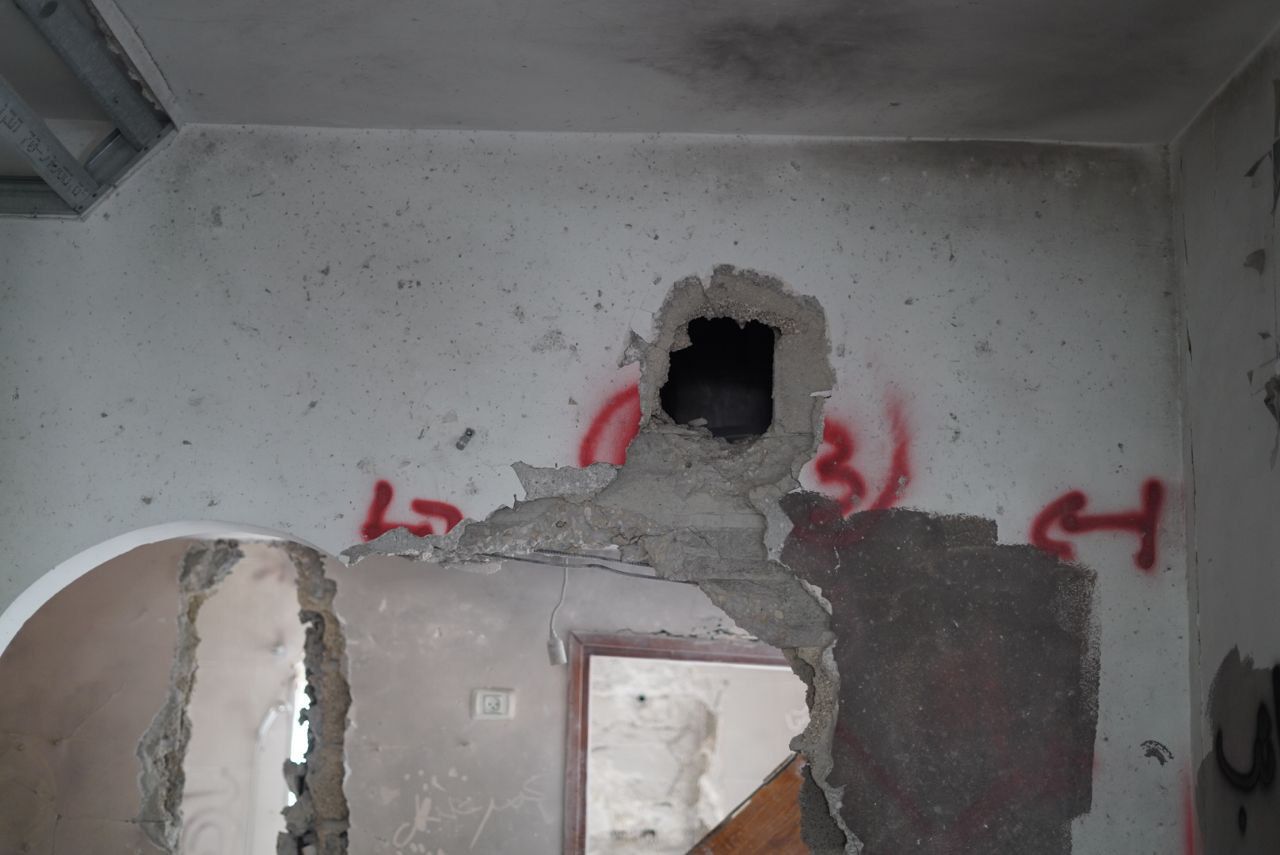
Aside from refusing to release Moataz’s body to this day, thus not allowing his family to give him a proper burial, the Israeli soldiers stormed his house several times and arrested his father for two weeks. They took measurements of his house in preparation for its demolition after handing his family a demolition notice.
“Soon after learning that Moataz was the young man who was killed by the soldiers after the attack in Tel Aviv, the house was stormed by dozens of Israeli troops. They began planning the house destruction, and, in two months, the house was blown up,” Salah told The Palestine Chronicle.
The family of seven sought the help of the town’s residents to move the furniture from their home to safety, after being handed the Israeli court order to demolish the house at any time.
“My siblings and I built this building on a plot of land that we inherited from my father. Each one of us lived on a separate floor. All my children were born and raised here, and it carries many memories that we can’t forget,” Salah added.
Dozens of Israeli military vehicles with hundreds of soldiers stormed Ni’lin on the night of May 23, carrying boxes of explosives, in preparation for the demolition operation.
“They surrounded the building, stormed in and then ordered us to leave within minutes. We couldn’t carry anything except our wallets. They forced all the residents to get out of the building, and then forced the residents of the whole neighboring houses to leave,” Salah added.
Within hours, the house of the Khawaja family turned into rubble. Its internal walls were shattered, while the external ones still bear witness to the enormity of the explosion.
The rest of the apartments in the building were not demolished but were damaged by the explosives. All the windows were shattered and the fragments of the bombed house were spread throughout the entire neighborhood.
“I now live with my family in my brother’s house on the top floor of the building. Our life will never be the same. But no matter how painful, the demolition of the house didn’t take away our steadfastness and dignity,” Salah concluded.
Memorable Details
According to the Palestinian Information Center MAUTA, 13 homes of Palestinians accused of carrying out resistance operations – some killed and others imprisoned – have been demolished or blown up by the Israeli occupation forces in the West Bank and occupied Jerusalem since the beginning of 2023.
One of the last homes to be demolished was the family home of Palestinian prisoner Osama Al-Taweel, who was accused by Israel of killing a soldier near the Shavei Shomron settlement, in the northern West Bank, last October.
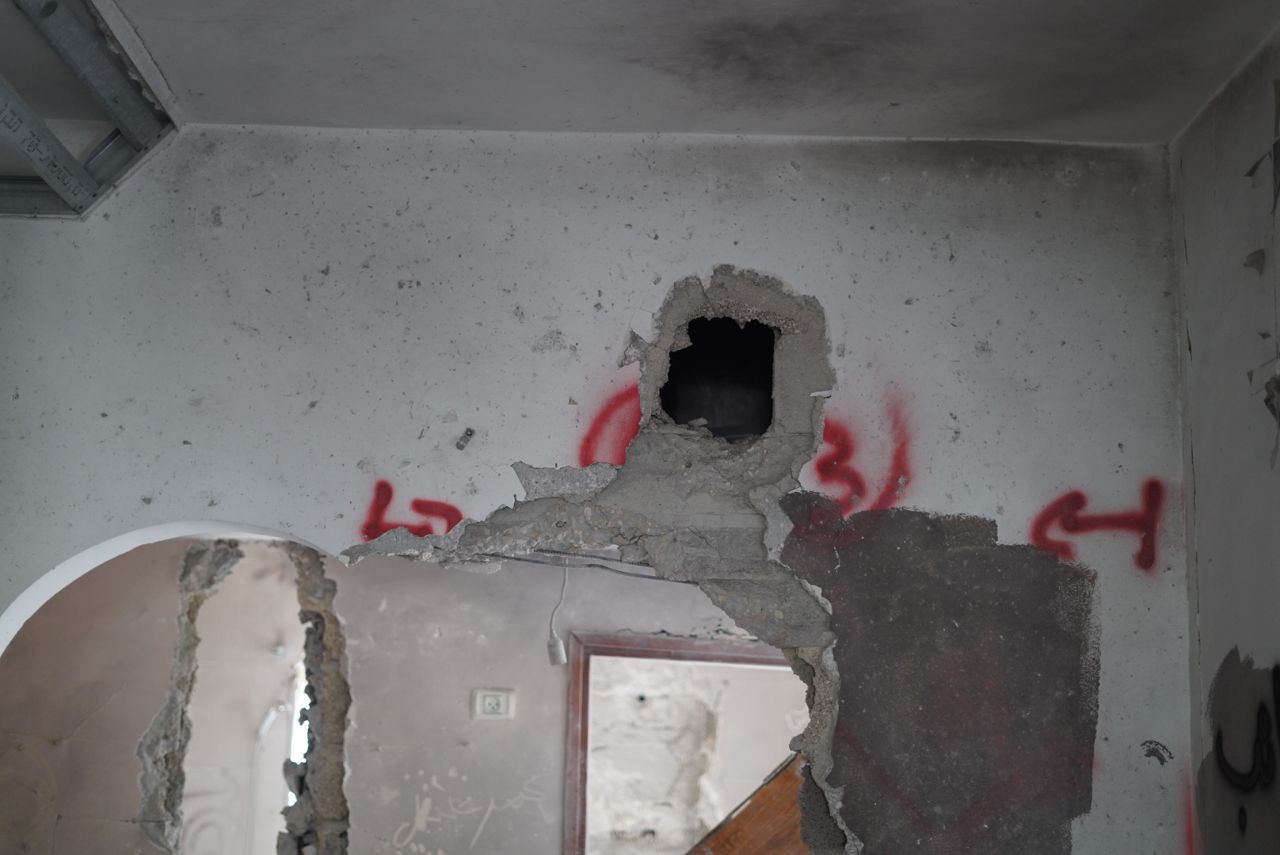
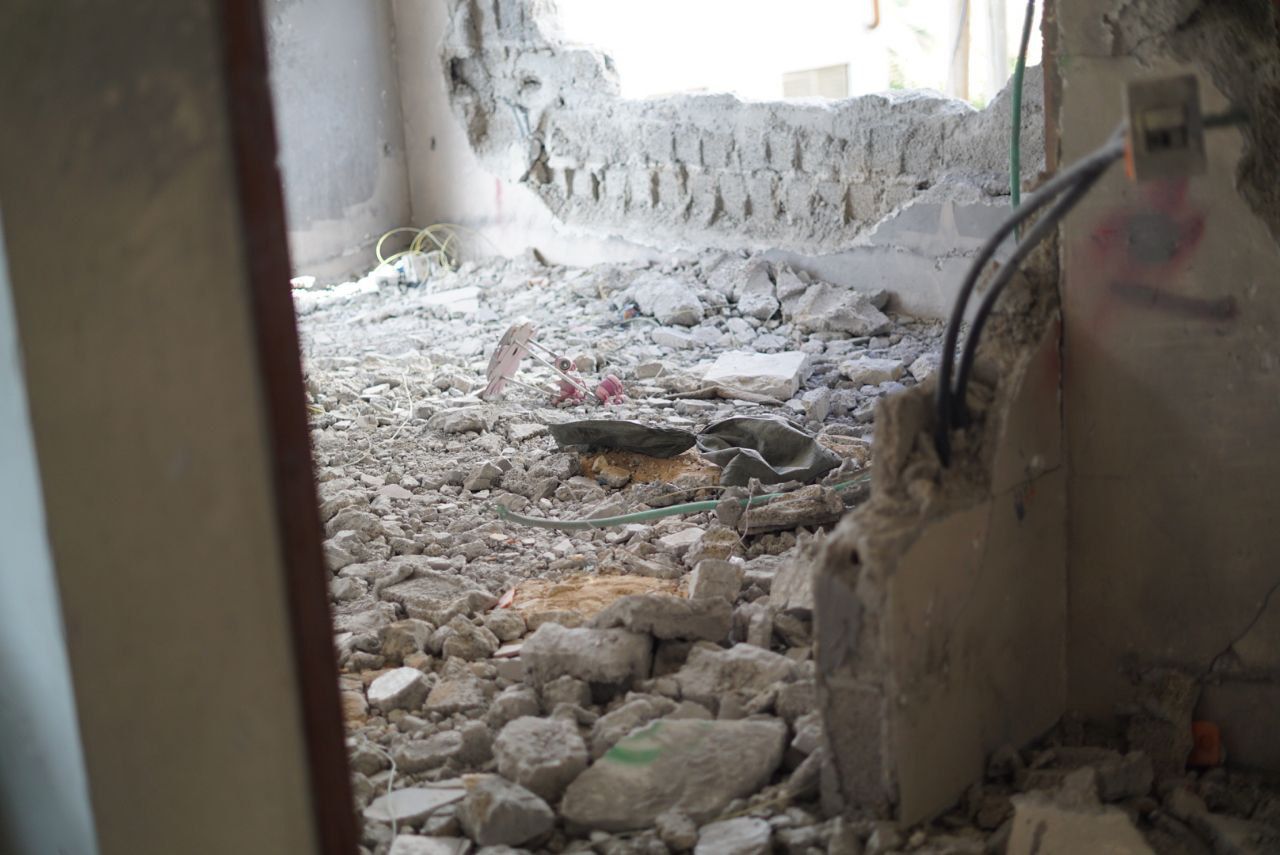
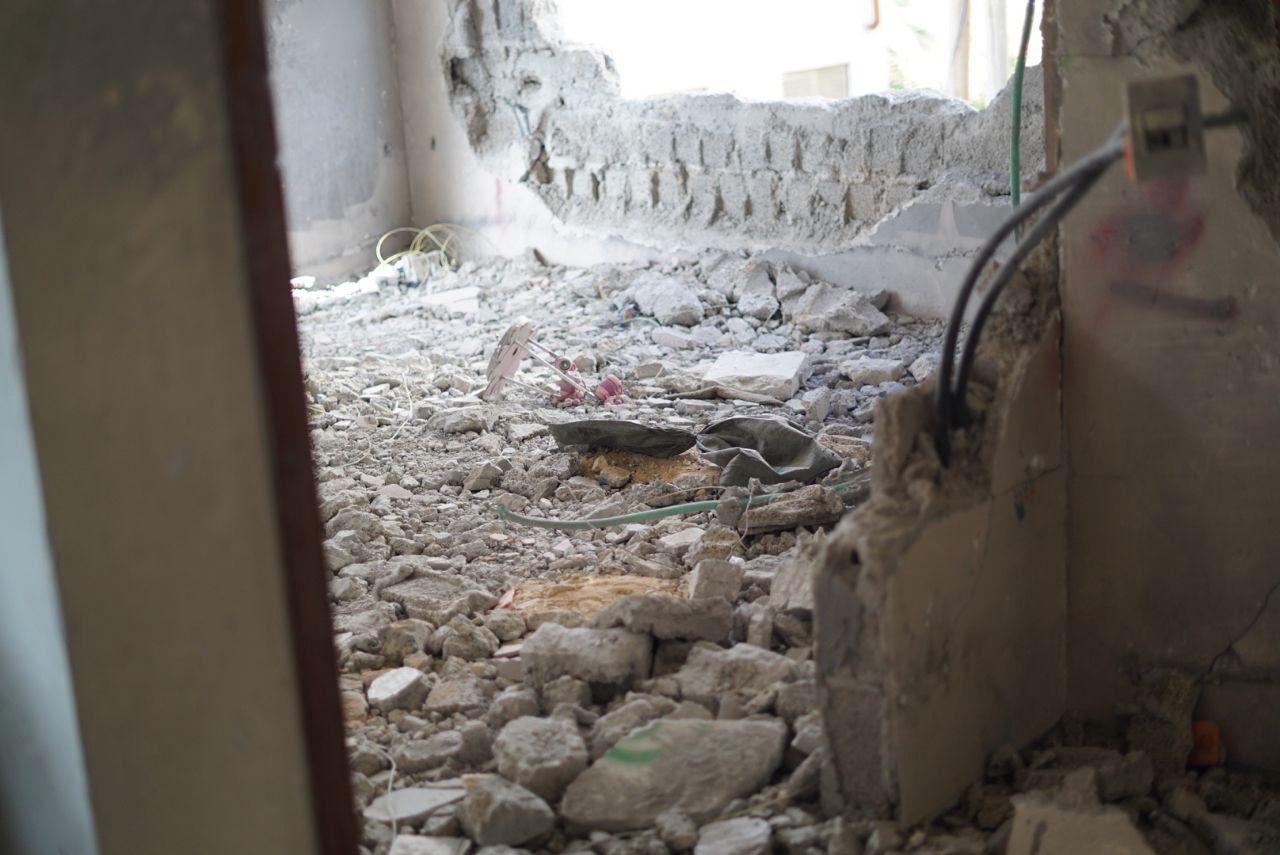
At the break of dawn on June 16, Israel blew up the prisoner’s house in the center of Nablus, leaving massive damage.
Huda al-Taweel, Osama’s mother, was devastated by the loss of her home and all the family memories it contained. She raised her son there. Now, the house is gone and the son is in prison.
Only a week prior to the demolition, the Israeli army blew up the apartment of Palestinian prisoner Islam Al-Faroukh in the heart of Ramallah.
On June 22, Israeli forces blew up the house of Palestinian prisoner Kamal Jouri, who was arrested last February and accused of taking part in the killing of an Israeli occupation soldier in the West Bank last October.
Policy of ‘Deterrence’
The frequency of the demolitions suggests that this policy has become a way for Israel to achieve what it calls ‘deterrence’, with the aim of discouraging Palestinains from taking part in the ongoing resistance against the Israeli occupation army and its illegal settlers.
However, the Israeli newspaper Haaretz published a report last March in which it stated that the policy of demolishing the homes of the Palestinian resisters had failed to achieve its primary goal. “(Its) effectiveness in deterring potential terrorists is in doubt”, according to Haaretz.
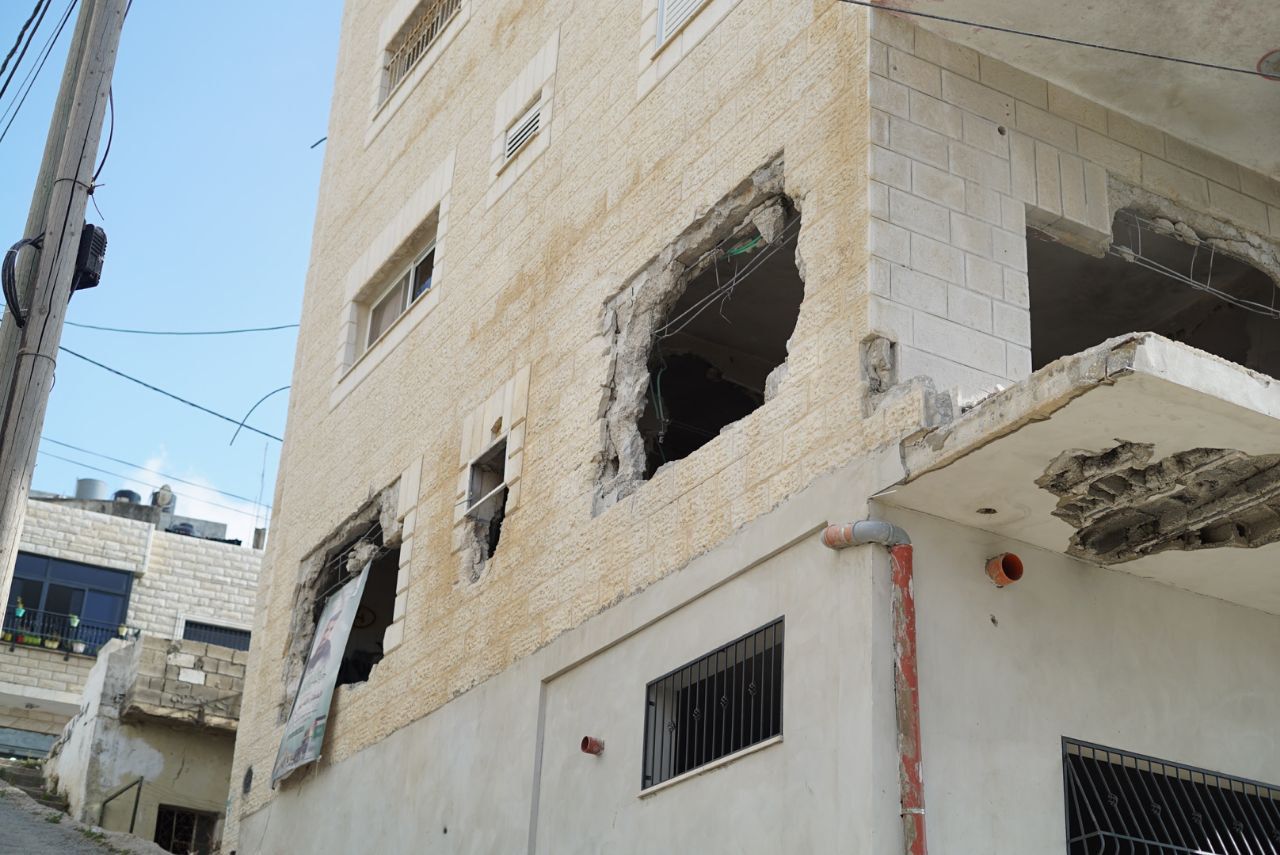
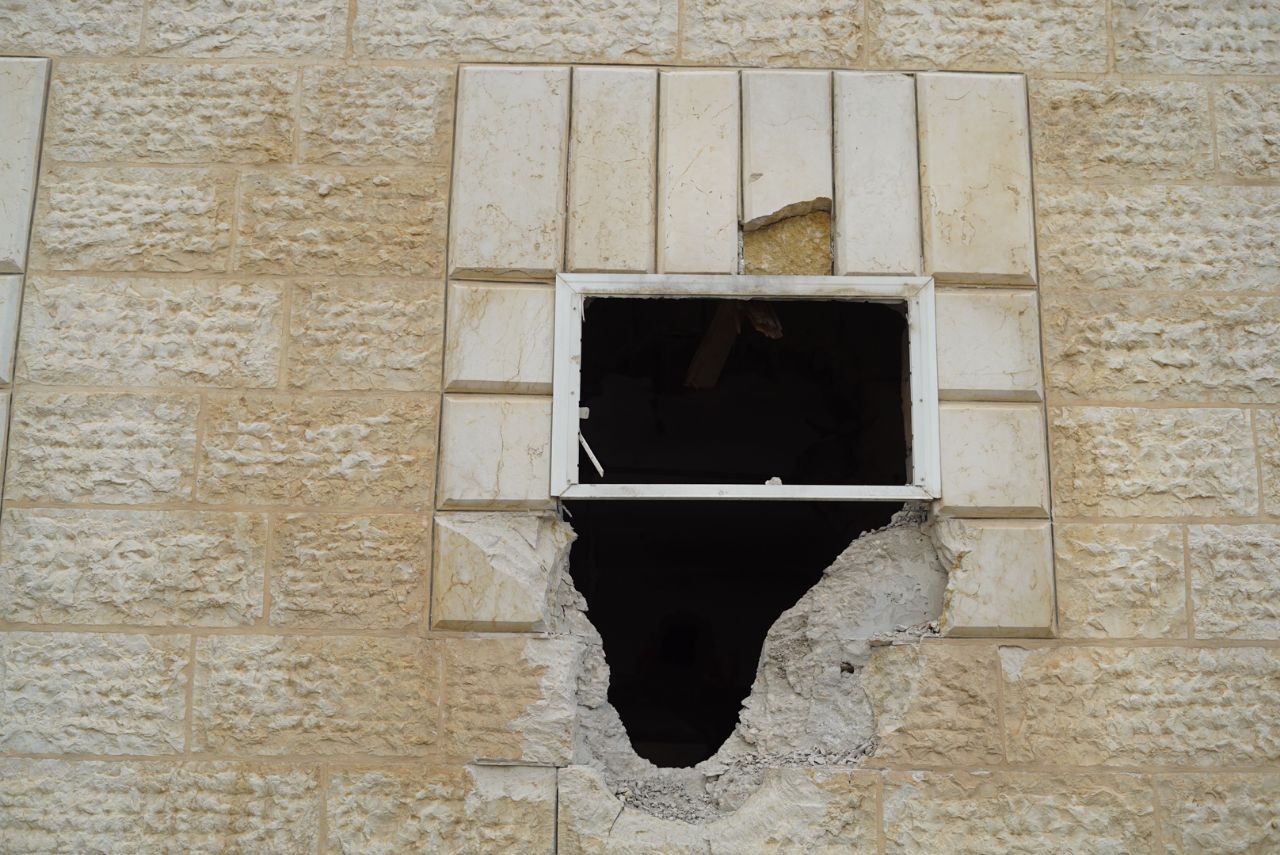
A War Crime
Shawan Jabarin, General Director of Al-Haq Foundation, believes that the home demolition policy dates back to 1967. At the time, it targeted the homes of Palestinian fighters and anyone who supported them.
According to Jabarin, “The logic of house demolitions is punitive, in order to deter other people from carrying out similar acts, and to try to intimidate the community that hosts them.”
Jabarin added that this is a retaliatory and not a legal measure, as there is no other country in the world that implements the policy of demolishing homes except for Israel.
“The international institutions consider house demolitions a war crime and a collective punishment,” Jabarin indicated.
(The Palestine Chronicle)
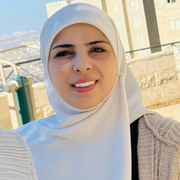
– Fayha’ Shalash is a Ramallah-based Palestinian journalist. She graduated from Birzeit University in 2008 and she has been working as a reporter and broadcaster ever since. Her articles appeared in several online publications. She contributed this article to The Palestine Chronicle.


